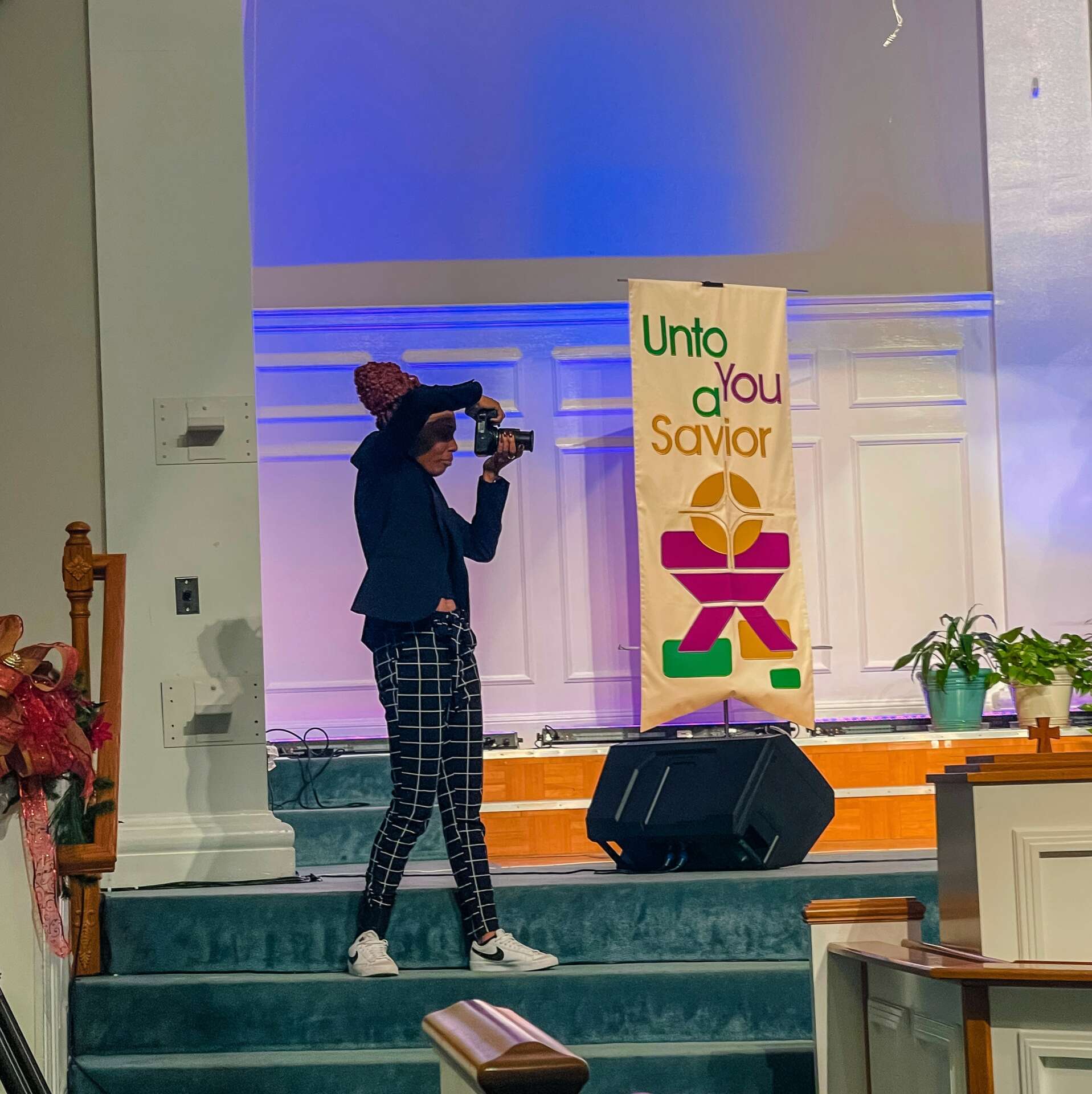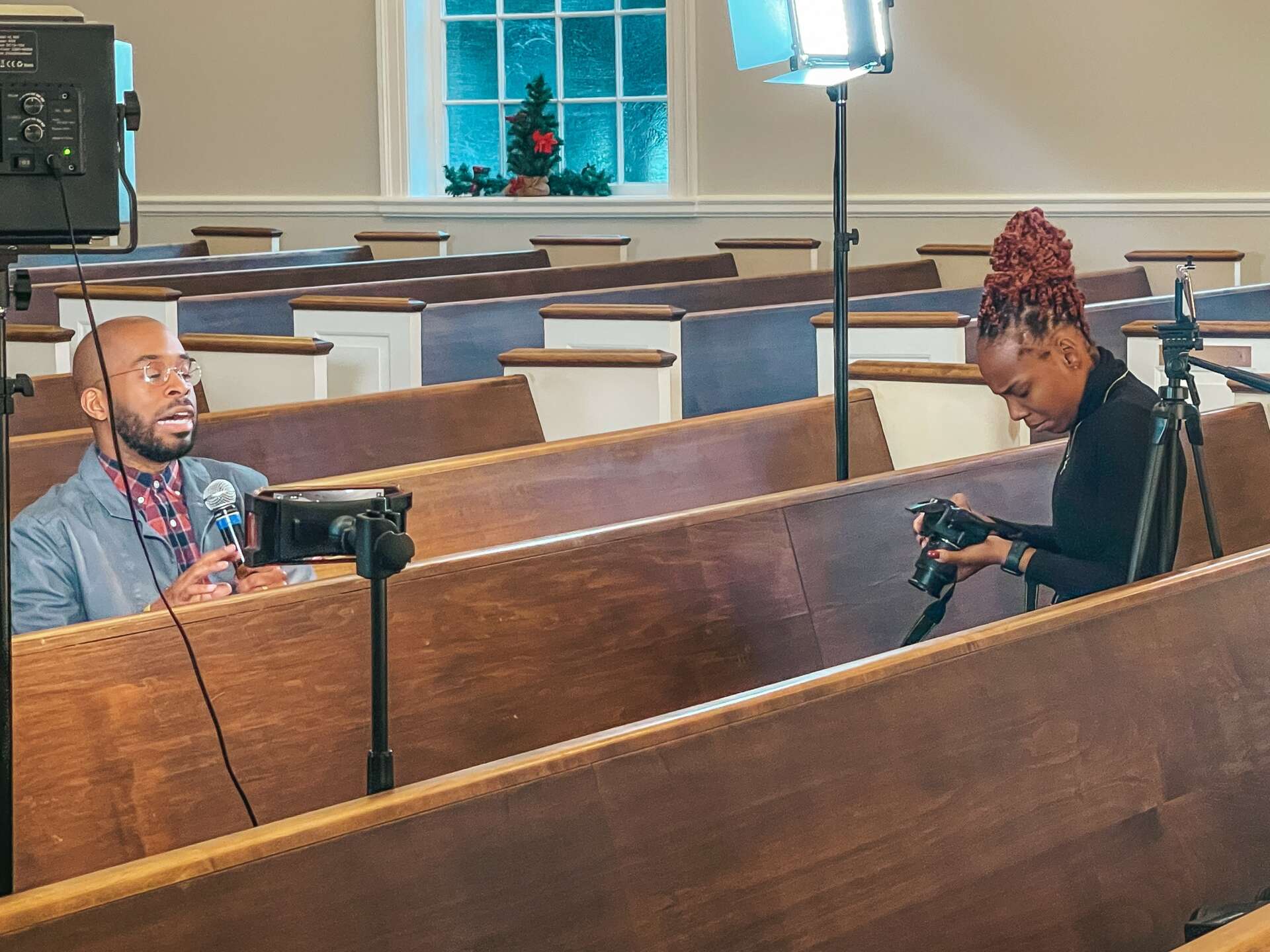We were lucky to catch up with Ty’Reanna Harris recently and have shared our conversation below.
Ty’Reanna, thanks for joining us, excited to have you contributing your stories and insights. What do you think Corporate America gets wrong in your industry? Any stories or anecdotes that illustrate why this matters?
That Representation Doesn’t Matter…
Around this time last year, the nation’s political focus was on the Supreme Court, through the lens of a Black woman named Judge Ketanji Brown Jackson. On February 25, 2022, Joe Biden nominated Jackson to be the associate justice of the Supreme Court. If confirmed Jackson will be the first Black woman to sit on the Supreme Court in the United States. As a Black woman I stood proud in knowing there was a possibility, through her honors confirmation, the Supreme Court would inherit a new lens because representation matters. Throughout the week of Brown Jackson’s confirmation hearing, photos, and videos of what took place during the Senate Judiciary Committee were all over the internet. However, there was one specific photo that garnished the most popularity. It is the photo of Judge Brown Jackson and her 17-year-old daughter, Leila. In the photo, Brown Jackson is seen sitting and smiling before the committee and her daughter is seated in the gallery directly adjacent to her mother. Leila is captured looking at her mother and it is perceived that she is smiling with admiration. For the understanding of how photos are captured, it is important that I note neither mother nor daughter is facing each other. Brown Jackson is captured smiling in the foreground, yet blurred while her daughter Leila sits behind her, in the sharpest of focus. The photo within seconds of being uploaded to social media went viral. What garnished the popularity of the photo is, when it was uploaded, it took less than seconds for the world to know who was responsible for the photo. Sarahbeth Maney is the phenomenal Black woman photographer who stood behind the lens and captured a moment this nation, and more importantly the “Black Collective” will never forget. As a Black woman, I mentioned the pride I felt when I learned the news of Judge Ketanji Brown Jackson’s nomination. However, as a Black woman who is too, a Photographer, what I cherish behind Sarahbeth Maney’s shot is much bigger than pride. In that moment, I felt a sense of belonging, Sarahbeth Maney, with a 3 second shutter displayed why representation, matters.
Photography and Politics are two places and spaces where Black women are represented the least. On average, Black women represent less than 5% of officeholders elected to statewide executive offices, Congress, and state legislatures. In the race of professional photography, African Americans rank at 5.6% wherein the percentage of that 5.6 that is Black women, is unknown. Yet Caucasian counterparts are far more likely to be invited to said spaces and cited for their work. I have always taken a vow of silence on what it means for “representation to matter because I deplore streaming service’s “fake woke” display of representation. In my opinion, as a person who sees life through the lens of my camera and who is unable (and would never) drop her, gender, race, religion, or class, I find society’s disposition on representation mattering to be nothing more than a parade. Therefore, I choose not to engage, that is until Sarahbeth Maney redefined through her chosen medium, Representation. I feel much different about Maney’s depiction than I do society’s because Maney knows all too well what it means for Judge Brown Jackson to be in this position. As do I. For us, as Black women, we were able to identify with Brown Jackson because we have, since the dawn of time been to feel responsible for creating a place for self in spaces that were not designed for us. More specifically, not only do I have a lens to what it feels like to be Judge Brown Jackson, I share what it feels like to be Sarahbeth Maney. As a photographer, I too, specialize in authentic storytelling. I believe that as African Americans we interpret based on experience. If there is no Black woman representation, then the story that is being told is unauthentic and has no lens to the black experience, therefore coined, half told.
I seek to capture more than what is seen, I believe what is felt matters too. In my own work I’ve noticed what is felt is typically captured only through Black women because to be a Black woman is to deal with the whole of self. I consider what could have happened if a white woman had captured that angelic moment. Though she would not have had a problem with being cited and credited, her lens to that moment does not tell the totality of the story because a white woman cannot successfully display, the black experience. I estimate that had a white woman taken this photo the likelihood of criticism would cease to exist. I recalled the moments of tension and celebration during the week of March 23rd, to myself. I remembered wondering, “wouldn’t it be nice if, among the sea of photographers, Black women were present.” Moments before this photo was taken, I envisioned how I would move through the room and what I would deem picture worthy. In my industry, black women are pinned in directed opposition to Caucasian counterparts, and Sarahbeth’s Oscar-worthy photo is unheard of. All my life, I’ve searched for women who looked like me in places Sarahbeth Maney and Judge Brown Jackson are in. I have been tasked with the responsibility as a Black storyteller to wonder, “Where are the Black Women?” It is Black women across the nation’s goal to ensure generations behind us are not disappointed when they glance across spaces in hopes to see women that look like them. We fight tirelessly for representation, respect, credit, citation, scholarship, and recognition. seeking to inspire and raise awareness of the lack of “blackness” in spaces. Sarabeth said, “I hope to forge a path for more to join our industry. When you’re the only one it feels difficult, and I’ve experienced that — but I hope it will be different for those who come after me.” I share the sentiment of my sister in storytelling because Representation Matters.



Ty’Reanna, love having you share your insights with us. Before we ask you more questions, maybe you can take a moment to introduce yourself to our readers who might have missed our earlier conversations?
I am a native of Jacksonville, Florida. a photographer, a Womanist scholar, a preacher, and a Digital Media consultant. She obtained her Bachelor of Science in Psychology at Bethune-Cookman University in Daytona Beach, FL. and her Master of Divinity from Candler School of Theology, concentrating in Religion and Race. As an innovative, trendsetting, and progressive thinker, I connect the digital world to all other aspects of my life, in creativity, businesses, and driving growth opportunities.
I am the owner and lead photographer of Ty’Nichole Photography and serve as the Director of Digital Discipleship at Shaw Temple AME Zion Church in Symrna, Ga. Currently, Ty”Reanna is a DMin Student at Memphis Theological Seminary. Ty’Reanna’s research interests are in Womanism, Digital Media, and its interconnectedness with African American
Psychology. Lastly S/O to my Sorors as I am a PROUD member of Delta Sigma Theta Sorority, Inc
Learning and unlearning are both critical parts of growth – can you share a story of a time when you had to unlearn a lesson?
“Don’t show off.”
I think society has a jaded grip on what it means to “show off.” While I know there is a fine line between confidence and arrogance, what I believe is this. To show off takes to literal definitions. One is, to display someone or something that is a source of pride, and the other is to make a deliberate or pretentious display of one’s abilities or accomplishments. While owning my craft, I’m learning the work it takes to get the photo that makes a momentary pause in real time. The hours of editing, the soreness in my body, and to be very transparent I do not have a steady hand, but when I go to capture of a photo I absolutely show off because I know all the odds are stacked against me. I know what I come to the moment with and whom I come to the moment as. They can call it what they will but when I capture a moment I essentially put my heart on the line. The photo will be great, show off, and be a deliberate or pretentious display of my ability.
When I have a camera in my hand, I know no fear.- Alfred Eisenstaedt



Can you tell us about a time you’ve had to pivot?
The funny thing about Photography is, it is often a daily pivot! What worked today may not work tomorrow, or the day after, and sometimes even seconds after. A commercial that comes to mind is the State Farm one when the Fisherman says “Ohh you almost had it, gotta be quicker than that.” I swear to you it is the funniest thing in the world to me because it is how I remind myself that it is okay to pivot, it’s often necessary. Pivoting proves that we can adjust, sometimes creativity needs to adjust, and sometimes so does creativity, if there is one thing that taught me that it is my efforts to infuse my creativity in my faith journey. We often have to pivot in our walk with God so I learned it’s okay to pivot in my business. You just keep swimming!
Contact Info:
- Website: https://tynichole.com
- Instagram: https://www.instagram.com/colurmety/?hl=en
- Facebook: https://www.facebook.com/profile.php?id=100007348758402
- Twitter: https://twitter.com/colurmety


